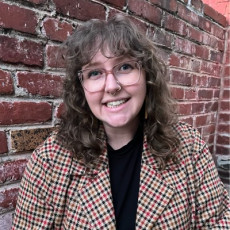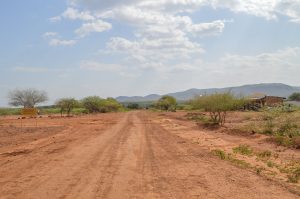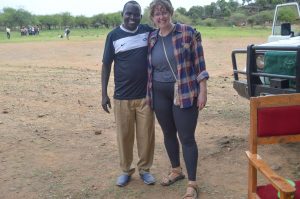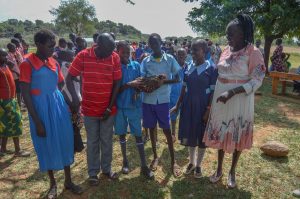The Pokot village of Chepkalacha sits above Lake Baringo. It’s hilly terrain is mixed with valleys of sturdy, thorny bush and vegetation with termite hills scattered around. There’s no power, electricity, network, or tarmac roads—dusty, red clay, rocky trails give way to Chepkalacha’s city center and to Chepkalacha Primary School where CPI Kenya held their holiday peace exchange with Pokot and Ilchamus students. The land is harsh (yet beautiful). But the people are kind, welcoming, and hospitable.
The people of Chepkalacha are pastoralists, meaning they raise livestock and migrate with their herd as they rotate through pasturelands to graze. Migration is varied, some staying closer to home while others (like one boy who attended the peace activities) go as far as Uganda with their herds. It’s an important way of life in Chepkalacha and throughout Northern Kenya that dates back millennia. Reverend Thomas Lasaja, a minister in Kiserian, explained to me that pastoralism is not just a livelihood—it’s extremely meaningful and is the center for a lot of cultural and societal traditions.
But with the onset of anthropogenic climate change, pastoralism has also become increasingly risky. Natural resources like water are drying up and the frequency and intensity of drought is increasing. Climate shocks kill livestock, compound conflict between tribes, and make life much harder for pastoralist communities.
TepTep, a teacher at Lomuge Primary School close to Chepkalacha, told me about his own life as a pastoralist. As a young boy, he dropped out of primary school to be a herdsman. He was a herder for 5 years until a drought came and killed almost all of his herd. With almost no cattle left, TepTep resumed his education and is now a teacher in the area where he grew up. TepTep’s story is similar for many young pastoralist boys—herds take precedence over education until a shock, usually drought, draws them back to pick up their education again.
Chepkalacha Primary School Headteacher, Madame Rhoda, talked to me about the impacts that the changing climate is having on women in Chepkalacha. She said that women in the village are walking longer distances to collect water. This then eats into their time/capacity to make money or find food for their family. In some situations, she said that young girls are forced to stay at home and help their families to fetch water, look after siblings while parents find jobs, and look after the home. Madame Rhoda emphasized that climate change has put an enormous emotional burden on women and girls in Chepkalacha.
Despite the difficulty pastoralists face by way of climate change, the Pokot people I met in Chepkalacha are unwaveringly resilient. Their ancestors have adapted for thousands of years to East Africa’s climate, and their resolve remains.
Chepkalacha Primary School’s participation in CPI Kenya’s peace camp and holiday peace exchange is an example of the community’s desire to continue adapting. But it’s not just their participation. They went out of their way to share what resources they do have with CPI Kenya staff to host the holiday peace exchange and make it successful—from providing mattresses for CPI Kenya staff to sleep on to parents’ generosity towards Ilchamus students. Both villages participating in the peace camps, Chepkalacha and Kiserian, have taken this opportunity for peace seriously.
In the long run, peace will not only reduce conflict between Pokot and Ilchamus, but will help them continue to adapt to climate change stressors by sharing resources with other tribes. By sharing pastureland, the hope is decreased conflict because herds will have access to pastures when drought kills vegetation and makes water scare. Through freer movement, the two communities can trade and create economic interdependence/alternative livelihoods.
Peace creates ripples of opportunities. It makes all aspects of life better for those who have it. CPI Kenya’s work to help pastoralists create peace is an integral part of helping them tackle other problems, too, like mitigating and adapting to climate change.
Posted By Julia Holladay
Posted Jun 29th, 2022





1 Comment
Iain Guest
June 30, 2022
Love the way you’re moving the discussion – and your own observations – from the children’s peace camps to the larger challenge of climate change. And doing it through people and profiles! Really good stuff Julia. We’re getting a wonderful sense of how your own journey is progressing and a deepening understanding of how these issues all hang together. Keep it up!